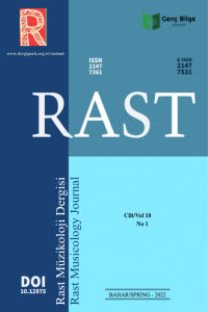The republic of love: cultural intimacy in Turkish popular music (2010), Martin Stokes book review
After the interaction of Turkish maqam (tune) music elements with arabesque tunes and popular music types after 1960s, the combination of lyrics, composition and performance were moved to different dimensions and significant transformations in terms of music were experienced in the second half of the 20th century. In the music history of Turkey, each period, which can be separately categorized into 1960s, 1980s and 1990s, determined its own actors representing different musical elements it contains. From the recording technologies used in records, cassettes and CDs to composition techniques, and from preferred instruments and performing techniques to visual elements, musical periods fed from different sources emerged. Zeki Müren, Orhan Gencebay and Sezen Aksu, whom Martin Stokes masterfully chose to include in his book published in 2010 TheRepublic of Love: Cultural Intimacy in Turkish Popular Music (Aşk Cumhuriyeti: Türk Popüler Müziğinde Kültürel Mahrem) with their common characteristics of lyrics writer, composer and soloist, are among the important representatives of the mentioned periods. This abstract, written for the purpose of promoting the book, examines the conceptualization of these iconic artists selected as period representatives.
___
- Ersoy Çak, Ş. (2019), The republic of love: cultural intimacy in Turkish popular music (2010), Martin Stokes book review, Rast Musicology Journal, 7(2), s.2209-2212. Doi:https://doi.org/10.12975/pp2209-2212
- ISSN: 2147-7361
- Yayın Aralığı: Yılda 4 Sayı
- Başlangıç: 2013
- Yayıncı: Genç Bilge Yayıncılık (Young Wise)
